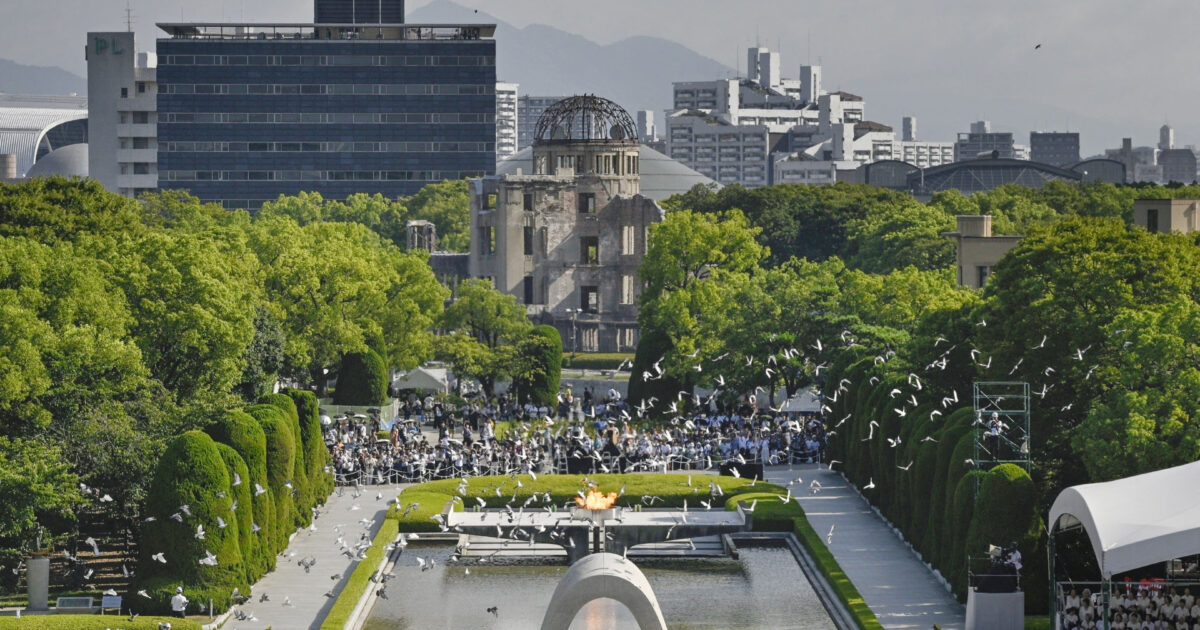On August 6, 1945, at 08:15 in the morning, the American bomber “Enola Gay” dropped the atomic bomb ‘Little boy’ at Hiroshima in Japan, marking the beginning of the era of nuclear weapons.
On August 6, 2025, 80 years after the atomic bomb was thrown, and at exactly the same time, a minute’s silence was kept in the Japan From representatives of more than 100 countries, to an atmosphere of emotion and increased geopolitical tension between the nuclear forces.
Hiroshima’s nuclear bombing cost about 140,000 people. Three days later, a second atomic bomb hit Nagasaki, killing another 74,000 people. The two attacks, which accelerated the end of World War II, remain the unique uses of nuclear weapons to date.
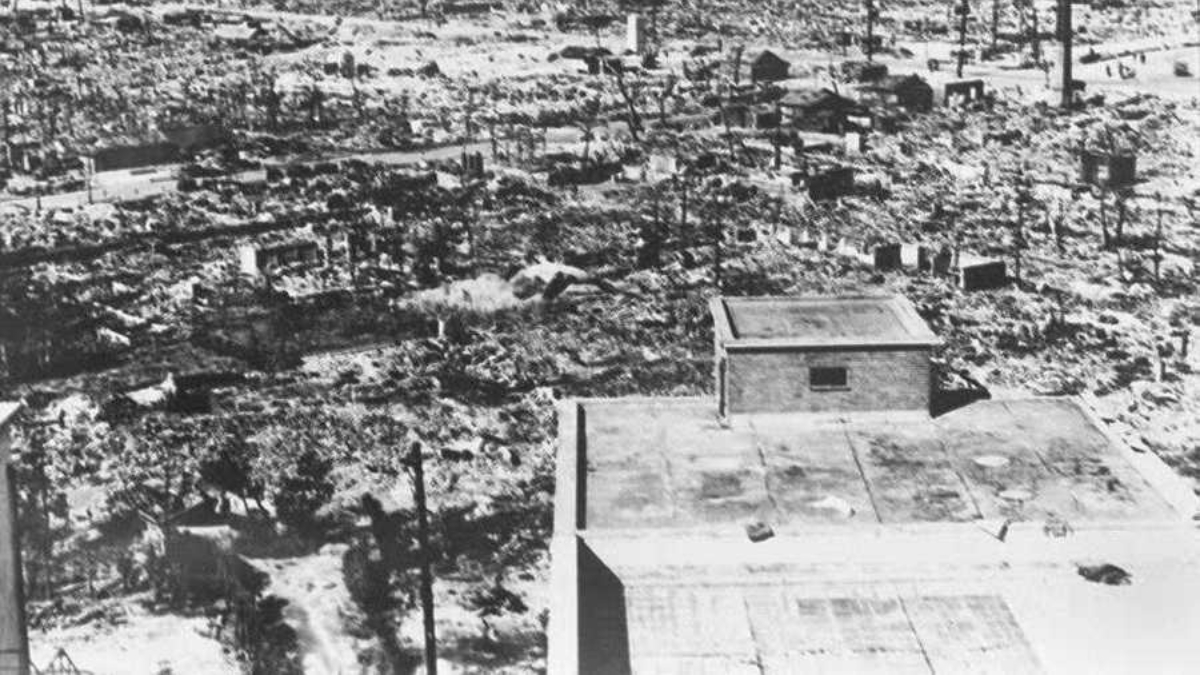

Appeal to complete abandonment of nuclear
At the ceremony, wreaths were filed on the cenotaph of the victims. Hiroshima Mayor, Kazumi Matsui, reiterated a clear appeal to complete the abolition of nuclear weapons. “The US and Russia have 90% of nuclear heads worldwide. Against the backdrop of the Russian invasion of Ukraine and tensions in the Middle East, we observe a general reinforcement of the armies, “he said.
He condemned the logic of nuclear deterrence: “Some leaders believe that nuclear is essential for their national defense, grossly ignoring the lessons of history. This attitude undermines efforts for peace. “
The mayor also invited US President Donald Trump to visit Hiroshima after his statements comparing air bombings in Iran with the throws of individual bombs in Japan in 1945.
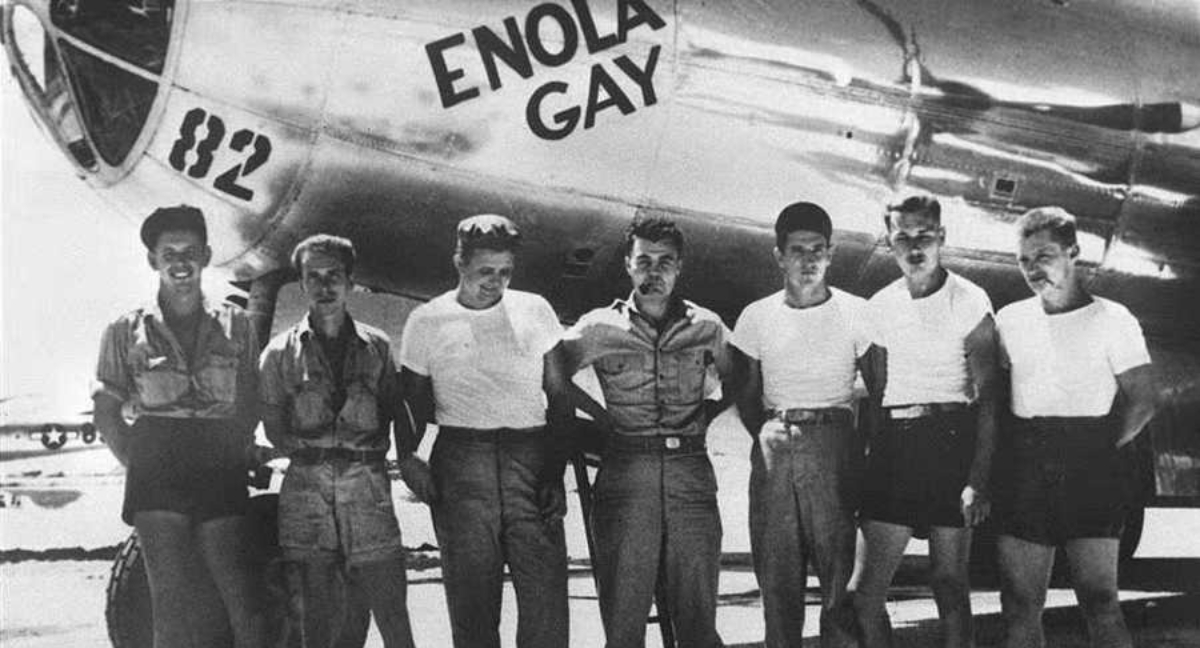

Memory as a living legacy
Japanese Prime Minister Sigerou Isiba stressed that Japan, as the only country to suffer nuclear bombings in times of war, “must lead international efforts for a world without nuclear weapons.”
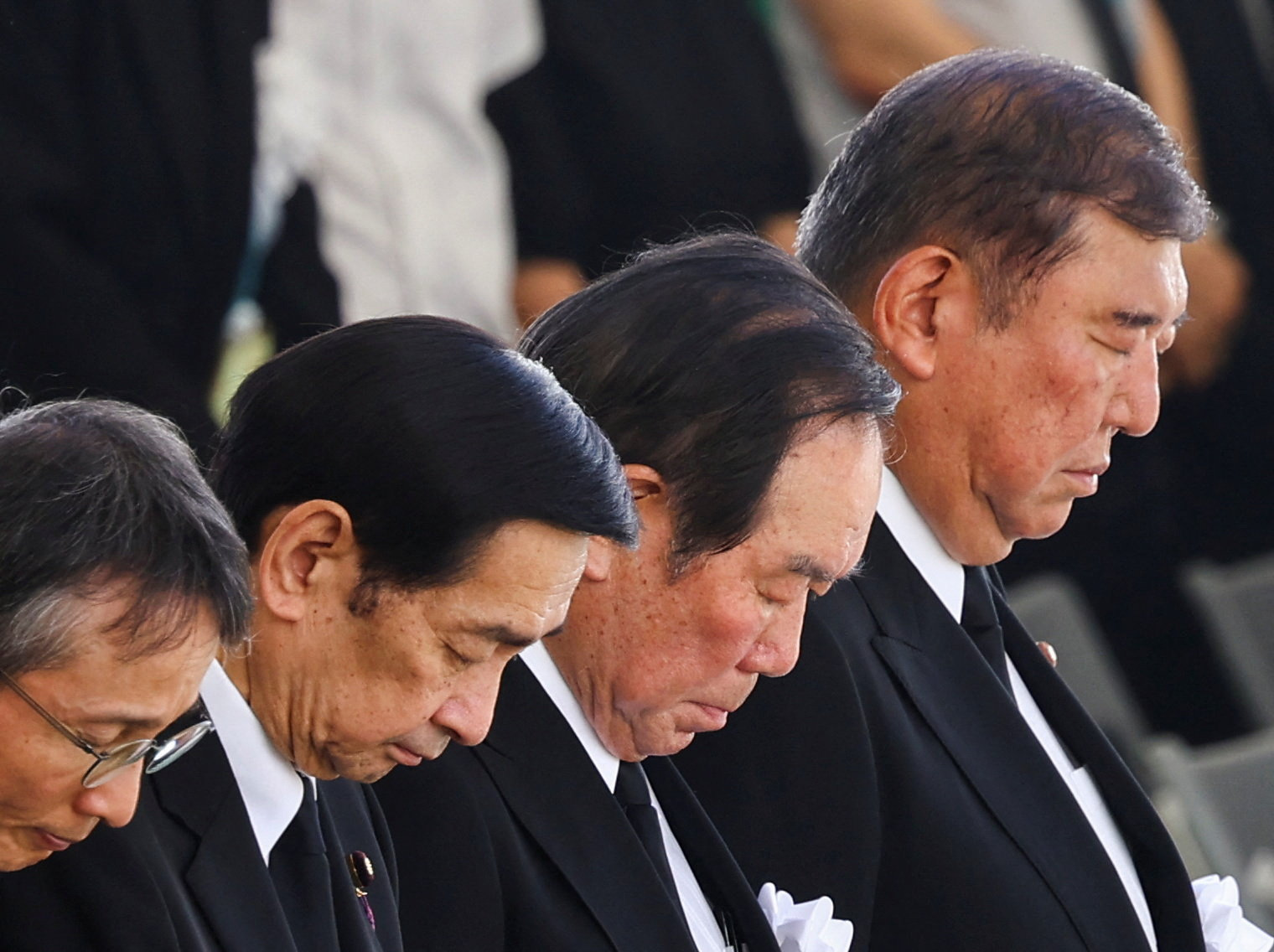

Representatives of 120 countries, as well as the European Union, attended the ceremony. France was represented by the deputy commander of her embassy. Russia, China and Pakistan – all nuclear forces – were absent. Iran was expected to be represented, despite the accusations of the West and Israel that it seeks to acquire nuclear weapons – something Tehran denies.
It is noteworthy that, for the first time, Palestine and Taiwan – two entities that Japan does not formally recognize. Unlike previous years, Japan did not address invitations to specific countries, but has all notified all.
Shocking testimonies of survivors
Pope Leo ID said in a message that “in this period of increasing tensions, Hiroshima and Nagasaki remain witnesses to the horror of nuclear weapons.” On Saturday, a similar ceremony will take place in Nagasaki, with a record of participating countries, including Russia – for the first time since its invasion of Ukraine.
Today, Hiroshima is a thriving metropolis of 1.2 million people. However, in the city center, the metal frame of the dome of the bomb continues to remind the tragedy.
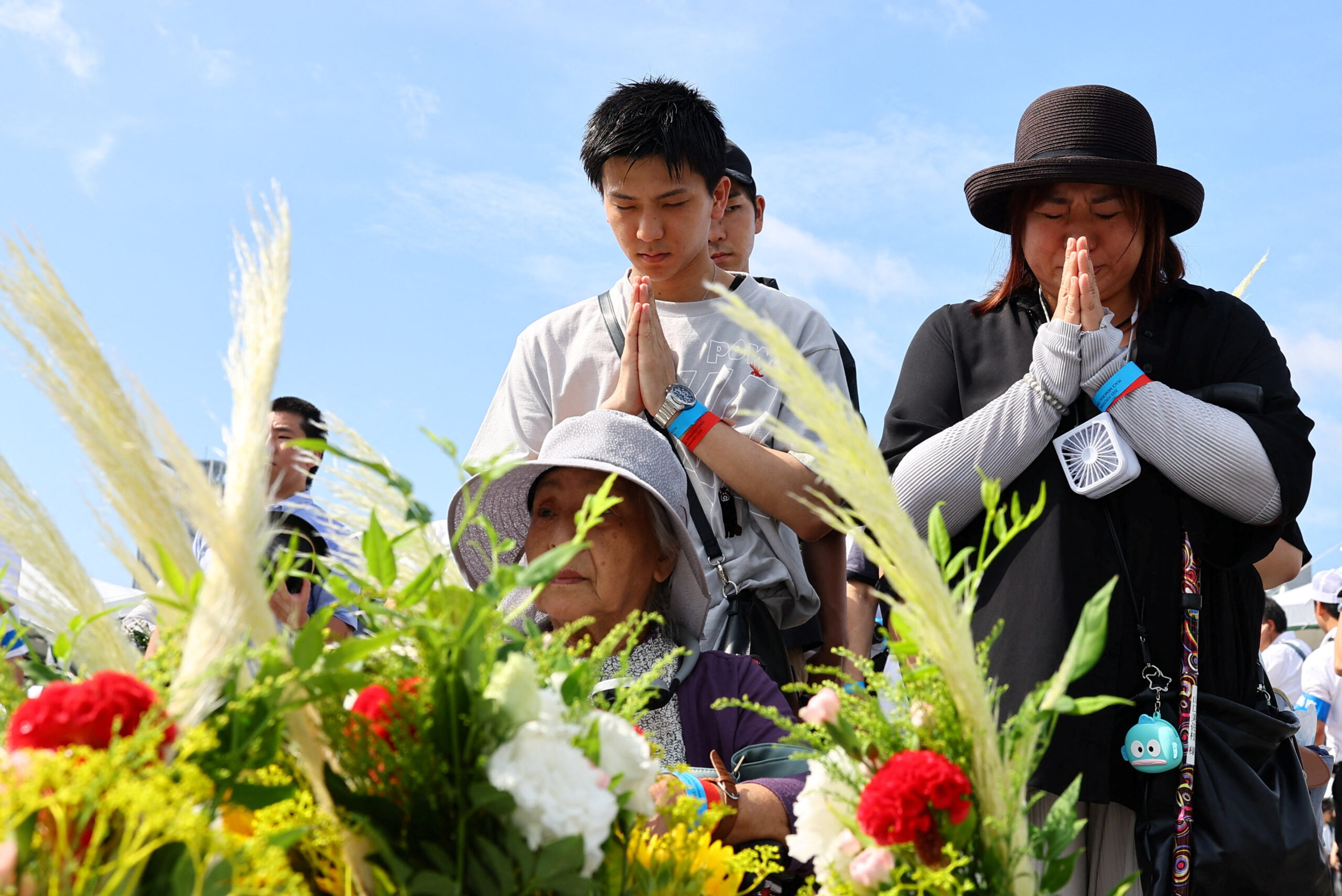

Among those who prayed in the cenotaph was Takako Hirano, 69, who lost her parents due to the consequences of the bomb: “There should never be nuclear bombings again. Here in Hiroshima we do everything we can to convey the message of peace. “
Yosi Yokohama, 96, saw her grandfather dying shortly after the explosion, and her parents succumb to radiation -related cancers many years later. “80 years later, there are still people suffering,” she said holding her grandson’s hand, Hiroki. “We have to tell this story to our children.”
Message of peace from generation to generation
Nihon Hidankyo, organization of survivors of the bombings (Himbacusa), which was honored with the Nobel Peacean in 2024, invites states to abandon nuclear weapons, utilizing the testimonies of the victims themselves.
According to data from the Japanese Ministry of Health, 99.130 Chimpakusa was left in March 2025, with an average age of 86 years.
UN Secretary -General Antonio Guterres, in his message, praised their legacy: “Although their numbers decrease each year, their message of peace is eternal. You, the inhabitants of Hiroshima, did not only rebuild a city – you rebuilt hope. “
Yukigio Kokoufou, 75, described how his mother suffered horrific burns and his 18 -month -old brother was killed instantly. “I really hope there will never be a new chimpanzee again. They are talking about nuclear deterrence – but we have to think about how to build peace. “
